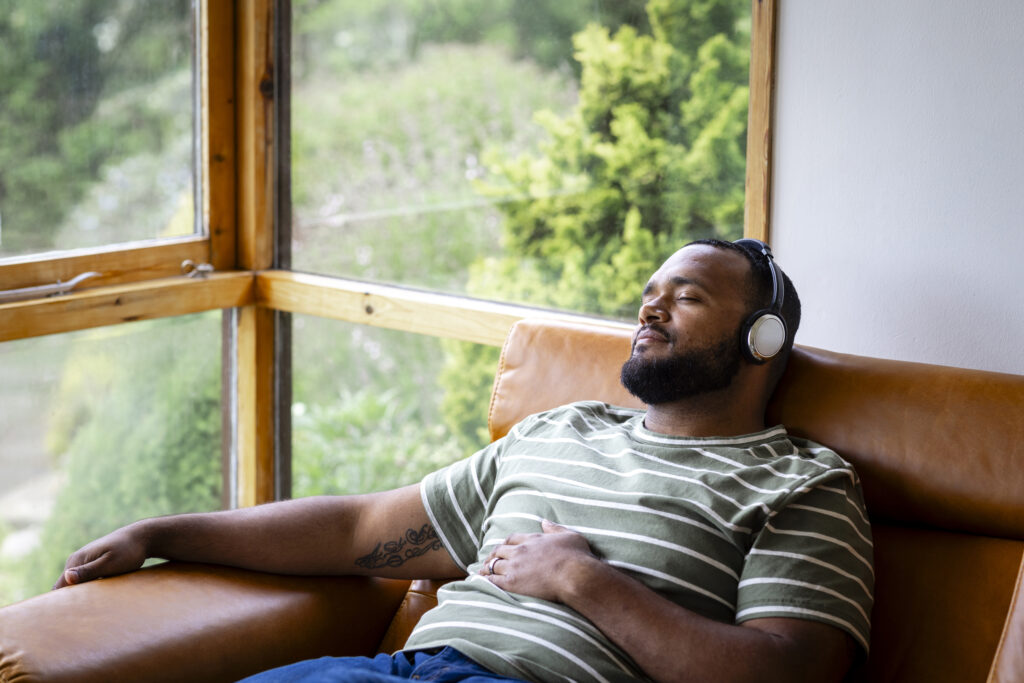Irritable Discontent: A Warning Sign in Recovery

Have you ever felt restless, short-tempered, or emotionally “off” for no clear reason? You’re not alone. In recovery circles—especially 12-step programs—this feeling has a name: irritable discontent.
It’s more than just a bad mood. It’s a persistent emotional state that, if left unaddressed, can quietly threaten even the strongest recovery. At Silver Ridge, we believe that understanding these subtle warning signs is just as important as avoiding substances. Because lasting recovery is about healing the whole person—body, mind and spirit.
What Is Irritable Discontent?
“Irritable discontent” refers to a low-level but chronic sense of:
- Irritability: Feeling easily annoyed, frustrated, or snappy
- Restlessness: A sense that you can’t get comfortable in your own skin
- Discontent: A nagging dissatisfaction, even when life is objectively “okay”
You might not be able to pinpoint what’s wrong. You just feel like something is missing, or like life is rubbing you the wrong way. This emotional discomfort is common in early recovery—but it can show up at any stage.
Why It Matters in Recovery
This kind of emotional state isn’t just unpleasant—it can be dangerous if ignored.
1. It’s a Relapse Risk
Many people turned to alcohol or drugs in the first place to escape exactly this kind of discomfort. When it reappears in sobriety, the brain may start whispering: “A drink would fix this.” That’s why irritable discontent is often considered an early warning sign of relapse.
2. It Distorts Your Thinking
When you’re stuck in this headspace, small problems feel big. Your recovery may suddenly feel pointless. You may think your progress is fake, your support system doesn’t care or nothing is ever going to feel “right” again. These aren’t truths—they’re symptoms.
3. It Disrupts Relationships
Emotional unease often spills out. You might lash out at loved ones, isolate yourself or struggle with low patience and high frustration. Over time, this can undermine the very connections that keep you grounded.
What Causes Irritable Discontent?
It can be triggered by many things, including:
- Stress or burnout
- Unresolved emotional issues
- Lack of structure or routine
- Skipping meetings or therapy
- Poor nutrition, sleep or self-care
- Feeling spiritually disconnected or purposeless
Sometimes, it just creeps in without any obvious reason. That’s okay too. The important thing is not to ignore it.
How to Cope With It
The good news? You can move through irritable discontent—without relapsing and without judgment.
Here are some tools that help:
Name It
The first step is recognizing what you’re feeling. Say it: “I’m feeling irritable discontent.” Giving it a name gives you power over it.
Talk to Someone
Call a sponsor, therapist or trusted friend. Let them know what’s going on—even if it feels “silly” or unimportant. You’re not being dramatic. You’re being honest.
Go Back to Basics
Sometimes your recovery toolkit just needs a reset:
- Are you eating well?
- Sleeping enough?
- Moving your body?
- Connecting with people who support your growth?
Small changes in daily habits can make a big emotional impact.
Re-engage with Your Recovery
This could mean attending a meeting, revisiting your step work, journaling or reading something inspiring. Often, irritable discontent signals a need for reconnection—with yourself, your Higher Power or your purpose.
A Normal Part of the Process
If you’re experiencing irritable discontent, you are not broken or failing. You are human—and healing. These moments are part of the recovery process. And when you learn how to navigate them, they can become turning points, not roadblocks.
You Don’t Have to Manage This Alone
At Silver Ridge, we understand the emotional layers of sobriety. That’s why our holistic, trauma-informed programs help clients build skills not just for staying sober, but for staying well. We address the subtle, emotional symptoms—like irritable discontent—that often go overlooked in traditional treatment.
If you’re struggling in silence, reach out. Relief is possible. Healing is possible. And you never have to do it alone.









